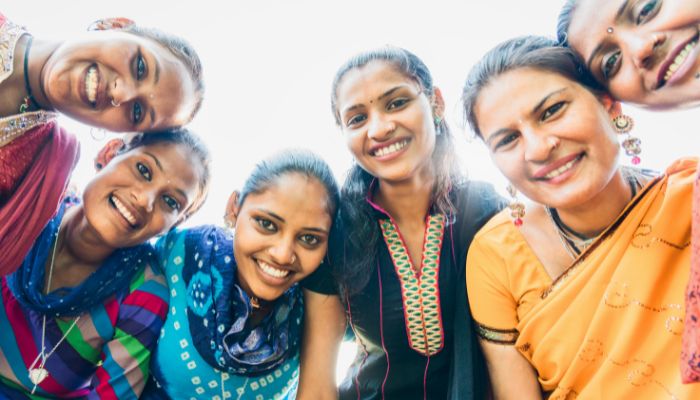
Understanding Property Rights for Women in India
Explore the legal provisions, rights, and protections available to women under various property laws in India. Know your rights and secure your assets.

Introduction: Understanding Property Rights for Women
Property rights for women in India have evolved significantly, moving from traditional, restricted rights to a modern legal framework that promotes equality. These rights ensure that women can own, inherit, and manage property without discrimination.
- Historical Context: Women had limited property rights in ancient India, primarily under patriarchal customs.
- Modern Legal Framework: The Constitution of India guarantees equality and non-discrimination, laying the foundation for women’s property rights.
- Constitutional Basis: Articles 14, 15, and 21 protect women’s rights to equality and personal liberty.
Legal Basis for Women’s Property Rights in India
The property rights of women in India are governed by various laws depending on religion, marital status, and type of property. Key legal provisions include:
- Hindu Succession Act, 1956 (Amended 2005): Grants daughters equal rights in ancestral property.
- Muslim Personal Law: Women are entitled to a specific share in inherited property, defined by religious principles.
- Indian Succession Act, 1925: Governs the property rights of Christian and Parsi women.
- Special Marriage Act, 1954: Provides property rights for women in inter-religious marriages.
- Stridhan: Recognizes a woman’s absolute ownership of gifts received before, during, and after marriage.
Property Rights for Women Under Hindu Law
The Hindu Succession Act, 1956, is the primary law governing property rights of Hindu women. The 2005 amendment brought significant changes, ensuring equal inheritance rights for daughters.
- Before 2005: Only sons had coparcenary rights in ancestral property.
- After 2005 Amendment: Daughters also became coparceners, enjoying equal rights in ancestral property.
- Self-Acquired Property: A woman has full ownership and can dispose of it as per her will.
- Stridhan: Any gift received by a woman during her lifetime is considered her absolute property.
- Judicial Clarification: The Supreme Court has upheld the retrospective application of the 2005 amendment.
Judicial Interpretation: Supreme Court’s Stand
The Supreme Court of India has reinforced women’s property rights under Hindu Law through various landmark judgments:
- Vineeta Sharma vs. Rakesh Sharma (2020): Daughters have equal rights in ancestral property even if their father passed away before the 2005 amendment.
- Prakash vs. Phulavati (2015): Clarified that the 2005 amendment is applicable to living daughters of living coparceners as of 2005.
- Danamma vs. Amar (2018): Reinforced that daughters are equal coparceners by birth, irrespective of their father’s status.
Property Rights for Women Under Muslim, Christian, and Parsi Law
Women’s property rights under Muslim, Christian, and Parsi laws differ significantly due to religious and personal law principles. Understanding these rights is crucial for ensuring equality and legal protection.
Property Rights for Women Under Muslim Law
Under Muslim Personal Law, women’s inheritance is governed by religious principles, primarily outlined in the Quran. Key aspects include:
- Fixed Share of Inheritance: Women inherit a specific share depending on their relationship to the deceased (daughters, wives, mothers).
- Mehr (Dower): A mandatory payment from the husband to the wife at the time of marriage, which is her absolute property.
- Gift (Hiba): Women can receive property through a valid gift during the lifetime of the giver.
- Will (Wasiyat): A Muslim woman can inherit property through a will, but only up to one-third of the total property if other heirs are present.
Property Rights for Women Under Christian and Parsi Law
The Indian Succession Act, 1925, governs the property rights of Christian and Parsi women in India. Key highlights include:
- Equal Inheritance: Daughters inherit equally with sons in the absence of a will.
- Testamentary Freedom: A woman can receive property through a will, and she can also bequeath her property as per her wishes.
- Widow’s Rights: A Christian widow is entitled to one-third of her husband’s property, while the rest is divided among the children.
- Parsi Women’s Rights: Daughters receive an equal share as sons, but in the absence of a will, the widow receives half of the husband’s property.
Marital Property Rights and Stridhan
In Indian law, property ownership within marriage is categorized primarily into two forms: Stridhan and jointly held marital property. Understanding these is essential for securing women’s financial independence.
What is Stridhan?
Stridhan refers to the property voluntarily gifted to a woman before, during, or after her marriage. It is her exclusive and inalienable property under all personal laws.
- Examples: Jewelry, cash, movable assets gifted by parents, relatives, or in-laws.
- Legal Status: The woman has full control and ownership. Even her husband cannot claim rights over it.
- Recovery Rights: In case of dispute or separation, she can recover Stridhan through legal channels.
Rights in Marital and Joint Property
Indian law does not automatically grant a wife ownership of her husband’s self-acquired property unless jointly held. However, she has legal remedies under various laws:
- Shared Ownership: If a property is jointly purchased in the name of husband and wife, she has legal ownership rights.
- Maintenance Claims: Under Section 125 of CrPC and personal laws, a wife can claim maintenance and residence rights.
- Domestic Violence Act, 2005: Grants the right to reside in the shared household and seek protection orders.
Property Rights for Widows in India
Widows in India have specific legal rights to inherit property, ensuring financial security and dignity. These rights differ based on the personal laws applicable:
- Hindu Law: A widow is a Class I heir under the Hindu Succession Act, 1956, giving her an equal share in her deceased husband’s property along with her children.
- Muslim Law: A widow is entitled to one-fourth of her husband’s property if she has no children, and one-eighth if she has children.
- Christian Law (Indian Succession Act, 1925): A widow is entitled to one-third of her husband’s property, with the rest divided among the children.
- Parsi Law: A widow receives half of her husband’s property if there are children and the entire property if there are no children.
- Maintenance Rights: Widows can claim maintenance under the Maintenance and Welfare of Parents and Senior Citizens Act, 2007.
How to Secure Your Property Rights as a Woman
Securing property rights as a woman in India requires understanding your legal entitlements and taking proactive steps:
- Maintain Proper Documentation: Ensure you have valid documents for any property you own or inherit.
- Register Property in Your Name: Always ensure property acquired in your name is properly registered with legal documentation.
- Prepare a Will: Create a legally valid will to protect your property rights and ensure clear inheritance.
- Know Your Rights: Stay informed about the property rights provided to women under various personal laws.
- Seek Legal Assistance: If your rights are challenged, consult a lawyer to protect your interests.
- Be Aware of Stridhan Rights: Understand that Stridhan is your absolute property, and no one can claim it.
- Dispute Resolution: Use family mediation or file a case in court if your property rights are violated.
FAQs – Understanding Property Rights for Women in India
Can a daughter claim her father’s property under Hindu Law?
Yes, under the Hindu Succession Act (Amendment 2005), daughters have equal rights as sons in ancestral property, regardless of their marital status.
Do Muslim women have equal property rights?
Muslim women have fixed shares in inheritance under Muslim Personal Law. Their share varies based on their relationship with the deceased.
Can a woman gift her Stridhan to anyone she wishes?
Yes, Stridhan is a woman’s absolute property, and she can gift or bequeath it to anyone she desires.
What are the rights of Christian women in property?
Under the Indian Succession Act, 1925, Christian women inherit property equally with their brothers in the absence of a will.
Can a wife claim her husband’s property after divorce?
In India, a wife does not have automatic rights over her husband’s self-acquired property after divorce, but she can claim maintenance or alimony.
Need Legal Assistance with Property Rights?
At Advocate Ace, we offer expert guidance on property rights, inheritance disputes, and women’s legal protections. Our experienced lawyers can help you secure your rights.
Book Your Consultation Now